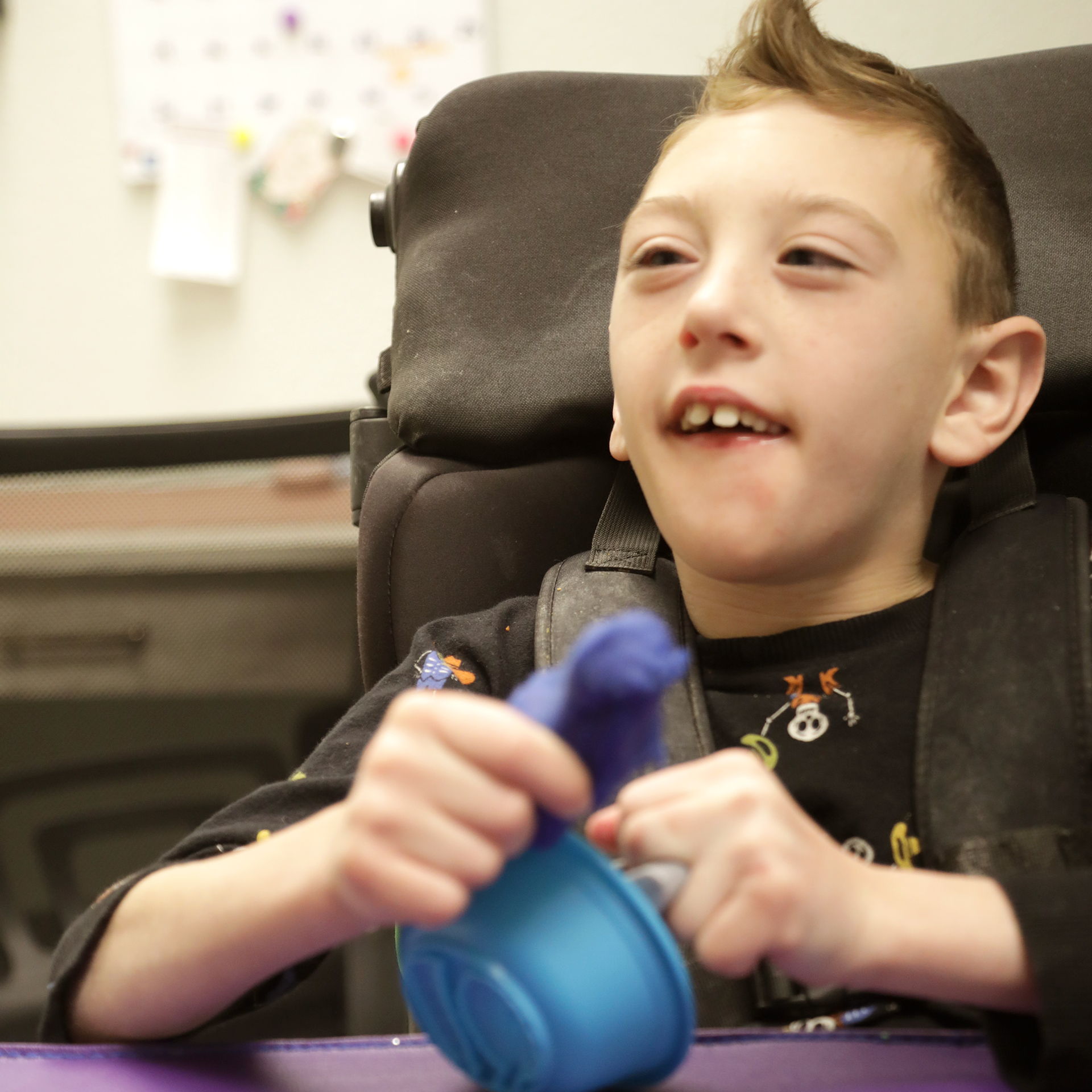Which Autism Makes You Smart


Understanding Autism and Intelligence
Autism Spectrum Disorder (ASD) is a complex and multifaceted condition that not only affects communication and social skills but also presents a diverse range of cognitive abilities. This article delves into the intricate relationship between autism and intelligence, exploring how different forms of autism manifest varied cognitive profiles, and highlighting the unique talents and achievements of individuals on the spectrum.
A Spectrum of Abilities: Autism and Intelligence
What is the relationship between autism and intelligence?
Autism is a spectrum disorder characterized by significant variations in communication and interaction abilities. This diversity extends to cognitive functioning as well. Approximately 40% of autistic individuals may experience intellectual disabilities, while the majority have average or above-average intelligence. This variation highlights the unique cognitive profiles within the autism spectrum.
Autistic individuals often demonstrate remarkable capacities in specific areas. For instance, many excel in fields such as mathematics, music, or art, utilizing distinctive thinking patterns that allow them to notice details and connections that others might miss. Such exceptional talents can sometimes align with savant syndrome, where an individual displays extraordinary skills in a particular discipline, although this is relatively rare among those with autism.
Moreover, assessing intelligence in autistic individuals can be challenging. Traditional IQ tests may not effectively capture their cognitive abilities, particularly in social communication and abstract reasoning. Some studies suggest that autistic individuals might score higher on nonverbal IQ assessments compared to their typically developing peers, complicating the understanding of intelligence in autism. The range of intellectual capabilities demonstrates the nuanced relationship between autism and intelligence, encouraging an appreciation for the diverse strengths and challenges faced by individuals on the spectrum.
| Aspect | Description | Impact on Intelligence |
|---|---|---|
| Cognitive abilities | Vary widely among autistic individuals | Ranges from intellectual disabilities to exceptional skills in areas like math and music |
| Savant syndrome | Rare but notable instance of extraordinary talent | Does not equate to overall intelligence |
| IQ testing | May not accurately reflect autistic competencies | Traditional tests often overlook nonverbal strengths |
| Nonverbal IQ | Some studies indicate higher scores in autistic individuals | Challenges the assumption of inherent limitations |
| Emotional challenges | Individuals may struggle socially and emotionally | Can lead to higher rates of anxiety and depression |
Understanding the intricate relationship between autism and intelligence requires a careful consideration of the diverse cognitive profiles that exist among autistic individuals.
Types of Autism and Their Cognitive Profiles

How do different types of autism relate to cognitive abilities?
Different types of autism can manifest in varied cognitive abilities. For example, about 40% of autistic individuals may have an intellectual disability, but this does not mean all autistic individuals fit this profile. Many possess average or above-average intelligence, reflecting the diversity within the autism spectrum.
High-functioning autism is particularly noteworthy. This informal term describes those on the autism spectrum who can manage basic life skills and often lead independent lives. Individuals with high-functioning autism typically have an IQ of 70 or higher, and their language skills may be average or even advanced. However, they still face challenges in social interaction and communication.
Interestingly, some studies suggest that autistic individuals often perform better than their typically developing peers in nonverbal IQ tests. Furthermore, exceptional abilities may surface, especially in fields like STEM, music, and art. These unique talents may stem from heightened visual-spatial skills and sensory acuity, which transcend traditional cognitive assessments.
| Type of Autism | Common Features | Cognitive Abilities |
|---|---|---|
| High-Functioning Autism | Average or above-average IQ, independent living skills | Enhanced problem-solving abilities |
| Autism with Intellectual Disability | May face learning challenges | Variable cognitive abilities |
| Savant Syndrome | Extraordinary talent in specific areas | High skills in specific disciplines |
Overall, the cognitive profiles of those within the autism spectrum indicate a rich diversity in capabilities that further challenges common misconceptions about autism and intelligence.
Debunking Misconceptions about Autism and IQ

What are common misconceptions about autism and intelligence?
Common misconceptions about autism and intelligence often lead to stereotypes that can be misleading. One prevalent myth is the belief that all individuals with autism possess high intelligence or remarkable savant abilities. In reality, autism is a spectrum disorder, meaning intellectual capabilities vary widely. About 40% of autistic individuals may have an intellectual disability, while the remainder often has average or above-average intelligence.
Another misconception is the idea that people with autism are incapable of forming meaningful relationships. Many individuals on the spectrum develop strong connections, despite facing challenges in social communication. Additionally, a common assumption is that individuals with autism lack empathy. However, they experience a rich range of emotions, which may be expressed differently than neurotypical individuals.
Importantly, autism is not a disease or a mental health disorder. It is a complex neurodevelopmental condition that manifests uniquely in each person. Recent research suggests positive genetic correlations between autism risk and intelligence measures, further illustrating the intricate relationship between cognitive abilities and autism.
Exploring Intelligence Misconceptions
There’s a prevailing myth that high IQ equates to an absence of disabilities. This assumption oversimplifies the experiences of individuals, especially those with high-functioning autism or Asperger's syndrome, who can manage daily life yet struggle significantly with social interactions. Even with average or superior intellectual capabilities, such individuals may find themselves socially and emotionally behind their peers.
Studies indicate that individuals with autism often display exceptional cognitive strengths, particularly in visual-spatial skills and problem-solving. They may excel in fields like mathematics, art, or music, showcasing a unique cognitive profile. However, traditional intelligence tests may not capture this nuance, painting an incomplete picture of their true capabilities. This highlights the need for a more refined understanding of intelligence within the autism community.
High-Functioning Autism: Traits and Strengths

What are the characteristics of high-functioning autism, and what are its cognitive strengths?
High-functioning autism (HFA) is a term informally applied to individuals within the autism spectrum who experience milder symptoms and typically have an intelligence quotient (IQ) of 70 or higher. Although they exhibit average or above-average intellectual capabilities, they often encounter challenges in social interaction and communication.
Individuals with HFA may navigate daily life skills independently, yet they frequently struggle to understand nuanced social cues, leading to difficulties in both personal connections and professional environments. These challenges can manifest despite effective language skills.
Cognitive Strengths in High-Functioning Autism
One remarkable aspect of HFA is the presence of unique cognitive strengths. Autistic individuals often excel in specific areas such as visual-spatial reasoning, pattern recognition, and heightened attention to detail. Their ability to focus intensely on subjects of interest can lead to exceptional performance in disciplines like mathematics, music, and art.
Research indicates that many individuals with HFA may demonstrate superior abilities in problem-solving and may benefit from enhanced organizational skills. They commonly score well on cognitive assessments that measure nonverbal intelligence or fluid intelligence, presenting a different perspective on their cognitive profiles than traditional IQ evaluations might suggest.
| Characteristic | Description | Cognitive Strengths |
|---|---|---|
| Social Interaction | Difficulty reading social cues, may seem aloof | Pattern recognition in social settings |
| Communication Skills | Effective verbally but struggles with nuances | Attention to detail |
| Daily Living Skills | Can live independently, manage routines | Excellent memory skills |
| Interests | Intense focus on specific subjects | High performance in math/art/music |
This combination of unique characteristics and cognitive strengths highlights the diverse abilities within the autism spectrum, particularly for those with high-functioning autism.
Savant Syndrome: Extraordinary Skills in Autism

Are there exceptional cases of intelligence in autistic individuals, such as savant abilities?
Yes, there are exceptional cases of intelligence in autistic individuals, known as savant abilities. Savant syndrome is a rare condition where individuals, including those with autism, display extraordinary skills in specific disciplines, often complementing a broader context of cognitive challenges.
Approximately 1 in 10 individuals with autism may possess savant skills, which frequently include remarkable abilities in fields like music, art, and mathematics. Notably, there is a male predominance in these cases. The exceptional prowess often coexists with difficulties in other cognitive areas, illustrating a unique cognitive profile that challenges conventional perceptions of intelligence.
Unique Cognitive Profiles
The abilities seen in savant individuals highlight a high, yet imbalanced, aspect of intelligence. Indeed, many possess extraordinary memory capacities and acute attention to detail, allowing them to excel in tasks requiring significant focus and retention. To foster these remarkable skills, educational strategies often aim at nurturing talent rather than merely focusing on perceived deficits.
Key Aspects of Savant Skills
| Characteristics | Description | Examples |
|---|---|---|
| High memory power | Exceptional recollection in specific domains | Musical compositions, complex math problems |
| Limited areas | Skills are typically confined to certain areas | Mastery in chess, painting skills |
| Challenges | Often face social and communication issues | Difficulty with abstract reasoning |
In summary, while savantism remains an exceptional phenomenon within the autistic community, it sheds light on the vast spectrum of cognitive diversity that includes both significant strengths and challenges.
Notable Autistic Achievers and Their Impact

Which famous autistic individuals have made significant contributions to various fields?
Famous autistic individuals have left lasting legacies across diverse disciplines. Notable figures such as Alan Turing, a pioneering computer scientist, and Wolfgang Amadeus Mozart, a prolific composer, exemplify extraordinary talent associated with autism.
- Alan Turing: Regarded as the father of modern computing, Turing’s work during World War II in breaking the Enigma code had profound implications, leading to advancements in computer science.
- Wolfgang Amadeus Mozart: Renowned for composing over 600 works, Mozart’s incredible musical genius showcases the profound abilities often observed in individuals with autism.
Fields influenced by autistic talents
Autistic talents can influence various fields in remarkable ways. Here are some areas where these contributions are particularly notable:
| Field | Notable Contributions | Examples of Talents |
|---|---|---|
| Mathematics | Key theories and algorithms | Exceptional problem-solving skills |
| Music | Masterful compositions and musical theory | Unique auditory perception |
| Art | Distinctive artistic styles and techniques | Enhanced visual-spatial abilities |
| Technology | Innovations in computing and AI | Enhanced pattern recognition abilities |
The successes of these individuals highlight that autism can be associated with unique cognitive capabilities, challenging conventional views on intelligence and ability.
The Genetic Link Between Autism and Intelligence
What is the genetic relationship between autism and intelligence?
Recent studies indicate a compelling genetic connection between autism and intelligence. There are positive genetic correlations between autism risk and measures of intelligence, suggesting that some genetic factors associated with autism also correlate with high IQ. This overlap points to a complex relationship where specific genetic traits may enhance cognitive functioning in some individuals on the autism spectrum.
Research has found that many autism risk alleles correspond to alleles linked with higher intelligence. This highlights the dual nature of autism where certain genetic markers promote cognitive strengths, illuminating the various dimensions of intelligence on the spectrum. Individuals with autism are often seen to exhibit higher levels of intelligence than previously assumed, particularly in non-verbal and visual-spatial tasks, echoing the notion that traditional IQ assessments might overlook unique cognitive strengths.
Neuroscientific Insights
Additionally, neuroscientific studies have revealed that individuals with autism may demonstrate larger brain sizes and increased brain growth rates, which could be positively associated with heightened intelligence. Cognitive assessments, like the Raven’s Progressive Matrices, have shown these individuals performing exceptionally well, challenging earlier perceptions that linked autism chiefly with cognitive impairment.
This intricate interplay between genetics and cognitive capability underscores a need for nuanced understanding, as it reveals distinct cognitive profiles that incorporate both remarkable abilities and inherent challenges within the autism spectrum.
Visual-Spatial Skills and Nonverbal Strengths in Autism
How do specific cognitive abilities in autism manifest as strengths?
Individuals with autism frequently exhibit remarkable cognitive strengths that can be particularly pronounced in the domains of visual-spatial reasoning and nonverbal abilities. These unique cognitive profiles often enable them to excel in areas like mathematics, music, and art.
One study highlighted that many autistic individuals perform exceptionally well on assessments such as the Raven’s Progressive Matrices, known for measuring nonverbal reasoning and fluid intelligence. Such performances suggest that these individuals possess cognitive skills that diverge from what traditional IQ tests measure, which may not fully capture their capabilities.
Moreover, individuals on the autism spectrum often demonstrate enhanced abilities to identify patterns, details, and spatial relationships that others might overlook. This can lead to successful outcomes in fields requiring high visual-spatial intelligence, such as architecture or graphic design.
Nonverbal IQ abilities
Interestingly, research suggests that autistic individuals may score higher on nonverbal IQ assessments compared to typically developing peers. This indicates that their cognitive strengths are not merely about general intelligence but are more nuanced, focusing especially on skills like visual processing and organization.
In summary, while traditional IQ assessments may not reflect the full extent of an autistic individual's cognitive capacities, their heightened nonverbal abilities and visual-spatial skills represent significant strengths that contribute to their unique cognitive profiles.
Conclusion: Embracing Diverse Abilities
The relationship between autism and intelligence is as varied and complex as the spectrum itself. By examining the specific strengths and challenges faced by autistic individuals, particularly those with high-functioning autism or savant abilities, we gain a deeper understanding of the unique cognitive landscapes within the autism community. Through continued research and awareness, we can better support and celebrate the talents of autistic individuals, fostering an inclusive society that values diverse cognitive abilities.
References
- Are Autistic People Smart? Autism Geniuses
- High-Functioning Autism: What Is It and How Is It Diagnosed?
- Asperger's Syndrome: Normal IQ - Kennedy Krieger Institute
- Autism As a Disorder of High Intelligence - PMC - PubMed Central
- Which Autism Makes You Smart? - ABATherapistJobs.com
- The savant syndrome: an extraordinary condition. A synopsis
- Savant skills in autism: psychometric approaches and parental reports
Recent articles

How Pediatric Therapy Helps Kids Thrive across Montana and Wyoming
A supportive guide for families exploring therapy options in Billings, Butte, Missoula or Sheridan.

How to Choose the Right Pediatric Therapy Clinic in Billings, Montana
A Parent‑Friendly Guide To Finding The Best Support For Your Child

Expressive Speech Delay 2-Year-Old
Understanding and Addressing Expressive Speech Delay in Toddlers

How Speech Recognition Works
Unlocking the Power of Speech Recognition in Therapy and Healthcare

Autism and Head Size
Understanding the Complex Relationship Between Autism and Head Size

Occupational Therapy in Autism
Enhancing Independence and Quality of Life Through Occupational Therapy in Autism

